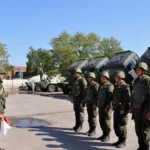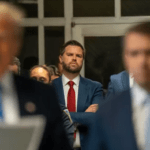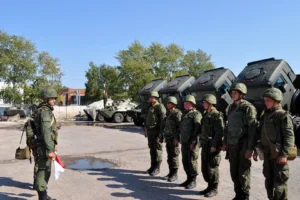Supreme Court Justice Clarence Thomas on Monday temporarily blocked a subpoena demanding testimony from South Carolina Republican Sen. Lindsey Graham from a Georgia grand jury investigating election interference by former President Donald Trump.
The hold on the subpoena came three days after Graham’s attorneys asked Thomas to delay the senator’s appearance before the grand jury, which is investigating possible criminal interference in Georgia’s presidential election in 2020.
On Thursday, a panel of judges on the 11th Circuit U.S. Court of Appeals unanimously rejected a request by Graham to temporarily block the subpoena, which calls for the senator to testify on Nov. 17 in an Atlanta courthouse.
The appeals panel said Graham had failed to show he was likely to succeed on an appeal challenging the legality of the demand for his testimony. Last month, a federal district judge upheld the legality of the grand jury’s subpoena.
The grand jury specifically is probing the actions of Trump and his allies, including Graham, who contacted state election officials and others on the heels of the election, which was won in that state and nationally by President Joe Biden.
Trump pressured state officials to take actions that could have overturned Biden’s win, as part of a similar effort in other swing states whose losses by Trump ensured his defeat in the Electoral College. In an early January 2021 phone call with Georgia Secretary of State Brad Raffensperger, Trump urged him to “find” enough votes to erase Biden’s margin of victory.
Thomas, who is responsible for emergency applications such as Graham’s issued out of the 11th Circuit, issued the hold on the subpoena on his own accord, without referring the question to the entire Supreme Court.
The conservative justice said the subpoena would be delayed pending further order by Thomas or the Supreme Court. Two days before he issued the stay, Thomas told Fulton County, Georgia, prosecutors, who are presenting evidence to the grand jury, to respond by Thursday to Graham’s request for a stay of the subpoena
The stay will give time to Graham’s lawyers and prosecutor more to file briefs arguing whether the subpoena should be allowed to stand or not.
Graham’s lawyer Donald McGahn did not immediately respond to a request for comment.
A spokesman for Fulton County District Attorney Fani Willis declined to comment, saying prosecutors would respond to Graham’s application to the Supreme Court on Thursday, as ordered by Thomas.
Graham has argued that the subpoena violates the U.S. Constitution’s speech and debate clause, which protects members of Congress from legal risk from their comments related to legislative business.
He claims his call to Georgia Secretary of State Brad Raffensperger after Election Day 2020 was part of a legislative inquiry.
But the 11th Circuit panel in its ruling last week said that a federal district court judge had ordered that a Fulton County prosecutor could not question Graham about portions of the call that qualify as legislative activity.
“As the court determined, there is significant dispute about whether his phone calls with Georgia election officials were legislative investigations at all,” the appeals court ruling said.












